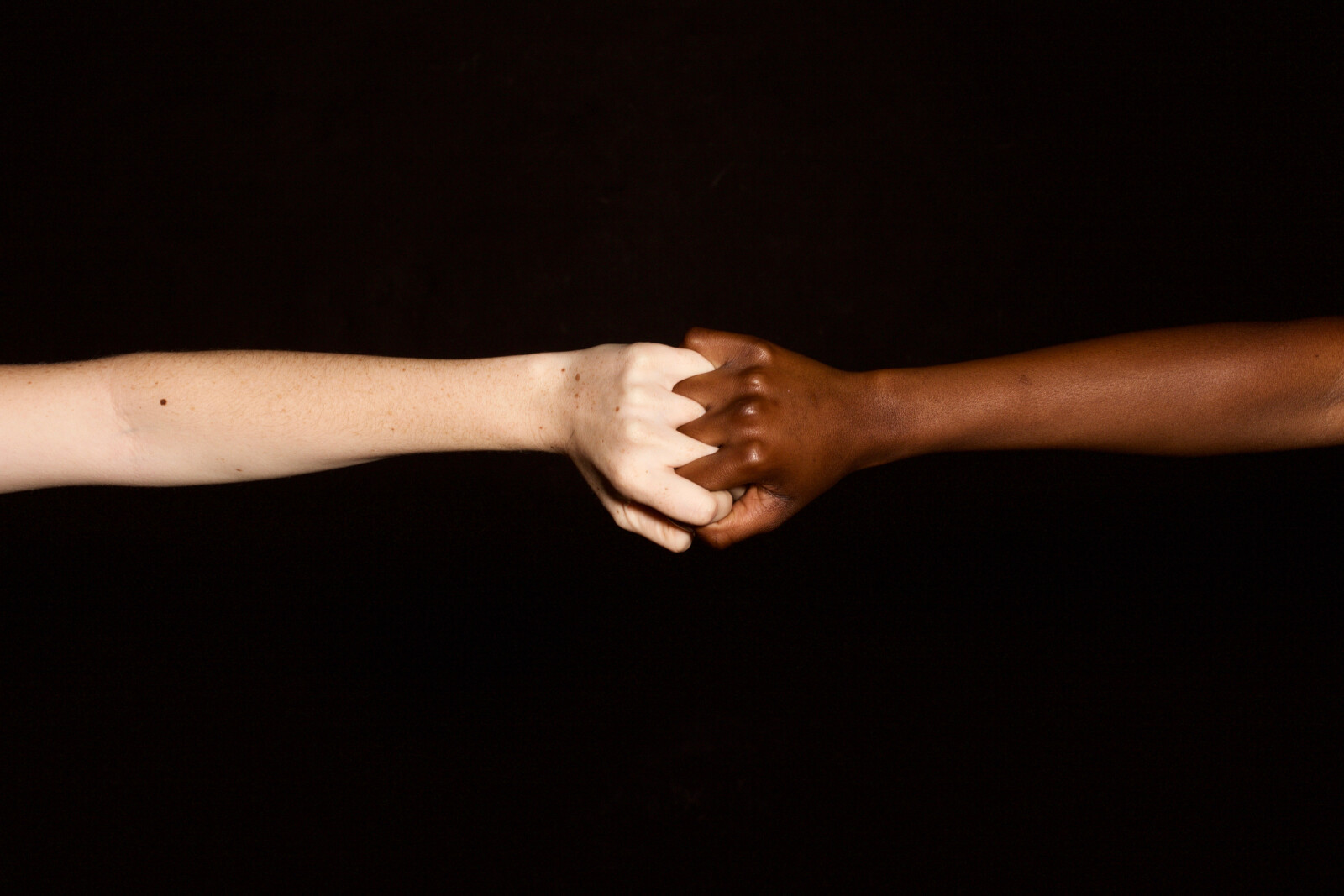Black Enrollment in Law School Continues to Decline
Despite committed efforts to escalate diversity, Black enrollment in American law schools is worryingly declining for the fourth consecutive year. This article scrutinizes the persisting underrepresentation, the contributing academic and financial obstacles, and potential strategies for reversing this trend. It aims to highlight the critical need for racial equity in legal education and the implications of its absence on the justice system, emphasizing the importance of diversity for public trust and representation.

Key Takeaways
- Black enrollment in law school has dropped for the fourth consecutive year.
- The overall percentage of Black students in law school has decreased from 8.11% to 7.94%.
- Black students are consistently and dramatically underrepresented in law school classrooms.
- Efforts have been made to increase enrollment of underrepresented groups and people of color in law schools, including implementing 3+3 admissions agreements with historically Black colleges and universities.
The Current State of Racial and Ethnic Diversity in Law Schools
The current state of racial and ethnic diversity in law schools is concerning, with Black enrollment witnessing a decline for the fourth consecutive year, reaching a mere 7.94% in 2019, despite efforts to increase representation and diversity. This trend contradicts the understanding of the significant impact of diversity on educational quality and professional competence. It affects not only the quality of discourse within academic settings but also the racial composition of the legal profession and the judiciary. Current trends suggest a critical need to reevaluate and intensify strategies aimed at addressing this disparity. It's crucial to ensure that law schools reflect the diverse society they serve, as diversity within these institutions fosters a more comprehensive understanding of the law, enriches learning environments, and enhances the overall credibility of the legal system.
The Importance of Diversity in Legal Education and Profession
In my view, diversity in legal education and the profession is vital, for it not only enriches the learning environment but also enhances the credibility and effectiveness of the legal system. The impact of diversity on the legal profession is monumental, creating a broad-minded community of practitioners equipped to address multifaceted issues. The benefits of racial representation in law schools are manifold, from encouraging robust discussions to fostering inclusive perspectives. However, the declining enrollment of Black students in law schools is deeply concerning. It is essential to challenge and rectify this trend, as their underrepresentation not only diminishes the richness of our legal discourse but also undermines public confidence in the justice system. Diversifying legal education is a crucial step towards a more equitable society.
Trends in Black Law School Enrollment
While it is clear that diversity within the legal profession is critical for robust discourse and public trust, the consistent decline in Black law school enrollment over the past few years is a trend that demands urgent attention. The impact of racial disparities in law school admissions, underscored by lower LSAT scores and higher attrition rates amongst Black students, contributes significantly to this alarming decline. Furthermore, the underrepresentation of Black students in top colleges exacerbates the issue. To counteract this, the role of mentoring programs in increasing Black law school enrollment cannot be underestimated. These programs, by offering personalized guidance and support, can serve as an effective tool in addressing this systemic issue and ensuring a more diverse, inclusive future for the legal profession.
The Challenge of Decreasing Black Enrollment in Law Schools
Addressing the persistent issue of decreasing Black enrollment in law schools requires an in-depth examination of the systemic barriers these students face, as well as comprehensive strategies to promote diversity and inclusion. Recent trends in law school applications reveal a disturbing decline in Black student enrollment, reflecting systemic obstacles such as financial constraints and academic disparities. This underrepresentation raises concerns about the lack of diversity in the legal profession, undermining its ability to reflect and serve a diverse society. However, some law schools are pioneering diversity initiatives to combat this trend. These efforts, while laudable, must be evaluated and expanded upon to ensure their impact reaches all potential Black law students, fostering a more inclusive and representative legal education environment.
Impact of Law School Admission Tests on Black Enrollment
Analyzing the impact of Law School Admission Tests on Black Enrollment reveals a potential barrier for Black applicants, correlating low scores with decreased admission rates. The impact of standardized tests on black law school applicants is evident, as these assessments often marginalize candidates who may lack access to adequate preparatory resources. This systematic disparity perpetuates a cycle where Black students are underrepresented in law schools, which in turn affects diversity within the legal profession. However, strategies to overcome racial disparities in law school admissions are emerging. Initiatives such as holistic admissions review, which considers more than just test scores, and partnerships with historically black colleges and universities, aim to address this imbalance. These efforts highlight the importance of fostering a legal education system that truly reflects the diversity of the society it serves.
The Role of Financial Constraints in Black Law School Enrollment
The manifestation of financial constraints significantly affects the enrollment of Black students in law schools, contributing to the continued trend of their underrepresentation. The financial barriers and racial disparities, both systemic and institutional, compound the enrollment issue. Black students often face significant economic hurdles, with the high cost of law school education often posing an insurmountable challenge. Coupled with lower average LSAT scores, this results in a disproportionate enrollment in lower-ranked schools, further widening the racial disparities. This crucial financial aspect underscores the urgent need for targeted scholarships, grants, and loan programs to bolster Black student enrollment. An empathetic understanding of these constraints, coupled with purposeful action, can pave the way towards a more diverse and inclusive legal education landscape.
Disparities in Law School Rankings and Black Enrollment
Why are there such stark disparities in law school rankings and black enrollment, and what steps can be taken to address this issue in higher education? The impact of racial bias in law school admissions may be a significant contributing factor to these disparities. Preconceived notions about academic ability can influence admissions decisions, creating a systemic barrier for black applicants. Additionally, lower scores on standardized tests like LSAT often limit black students' access to top-ranked law schools. To address this, measures such as comprehensive mentoring programs can play a vital role in increasing black enrollment in law schools. This approach could provide black students with much-needed academic support, resources, and guidance, ultimately enhancing their potential for admission into higher-ranking law schools.
The Effect of Lower-ranked Law Schools on Black Students
Lower-ranked law schools often disproportionately enroll Black students, which can potentially impact their bar passage rates and post-graduation employment opportunities. The impact of lower-ranked law schools on Black students is multifaceted. These institutions often lack the resources and reputation to provide optimal legal education, affecting student performance on bar exams, and subsequently employment prospects. Moreover, the financial burden can be overwhelming, with a higher risk of student loan default. To reverse the decline in Black law school enrollment, strategies such as providing more financial aid, improving academic support, and fostering an inclusive environment should be employed. Additionally, partnerships with historically Black colleges and universities can help increase enrollment and better support Black law students, ensuring they have equal opportunities for success.
Gender Disparities in Black Law School Enrollment
Despite the overall decrease in Black law school enrollment, a notable gender disparity exists, with Black women significantly outnumbering Black men in these institutions. The disproportionate representation highlights the persistent gender disparities within the academic sphere. This gender gap may be influenced by varying academic barriers faced by Black men, including socio-economic challenges, lack of mentorship, and systemic biases that negatively affect their academic progression. Empathy and understanding must be practiced when addressing these disparities. The imbalance not only influences the demographic makeup of law schools but also extends its implications to the legal profession. To ensure greater diversity and representation, it is crucial to address these gender disparities at the earliest stages of academic pursuit, fostering a more inclusive environment within law schools.
Efforts to Increase Black Student Enrollment in Law Schools
The ongoing efforts to increase Black student enrollment in law schools are a critical focus, and they involve numerous strategies such as forming admissions agreements with historically Black colleges and universities. Analyzing the impact of affirmative action on Black law school enrollment reveals its significance in promoting diversity. However, continuous decreases in Black enrollment indicate that more robust initiatives to improve access for Black students in law schools are necessary. Empathy towards the historical and systemic barriers faced by Black students, coupled with policy changes, can play a pivotal role in shaping a more inclusive legal education system. The underrepresentation of Black students undermines the potential benefits of a diverse legal profession, which includes enriching classroom discussions, enhancing the legal profession's credibility, and fostering a more equitable society.
The Influence of Historically Black Colleges and Universities on Law School Enrollment
Historically Black Colleges and Universities (HBCUs) have played a significant role in fostering Black law school enrollment, and yet, the persistent underrepresentation of Black students in law schools calls for a deeper evaluation of these efforts and the development of more comprehensive strategies. Affirmative action has been utilized as a tool to address this discrepancy but its impact on law school enrollment remains contested. While it has catalyzed some increases, it has not fully resolved the issue, suggesting the need for a multi-faceted approach. Incorporating mentoring programs, which have proven effective in supporting Black students through the demanding process of law school, could be a viable strategy. Together, affirmative action and mentoring programs could create a more inclusive environment, facilitating increased Black enrollment in law schools.
The Role of Law School Policies in Black Student Enrollment
Law school policies play a critical role in shaping Black student enrollment, and their effect extends beyond admission processes to areas such as financial aid, academic support, and campus culture. The decline in Black enrollment is partly attributable to existing law school admission policies, which often disproportionately disadvantage Black students. These policies heavily rely on LSAT scores, which do not adequately account for the systemic racial disadvantages faced by Black students. Moreover, insufficient targeted financial aid and lack of academic support further intensify the hardships. To enhance racial representation in law schools, it is imperative to revisit and reform these policies. An inclusive campus culture, fostering racial equality and understanding, is equally critical in encouraging and retaining Black students in law schools.
Future Implications of Declining Black Law School Enrollment
Continued decline in Black law school enrollment could profoundly impact the diversity and overall quality of the legal profession in the future. Future consequences could include diminished trust in the justice system and a lack of diverse perspectives in legal discourse. A legal profession that is not representative of the population it serves risks perpetuating systemic inequities. However, solutions exist. Initiatives such as partnerships with historically Black colleges and universities, targeted recruitment, scholarship programs, and LSAT preparation resources could reverse this trend. It is imperative that law schools, legal institutions, and policymakers prioritize these initiatives to foster diversity. The future of a robust, equitable, and inclusive legal profession hinges on our commitment to address this issue now.
Potential Strategies to Reverse the Decline in Black Law School Enrollment
While the decline in Black law school enrollment presents a significant challenge, it is critical that strategic initiatives be developed to reverse this trend, thus ensuring a diverse and representative legal profession. Focused strategies could include enhanced academic support, mentorship programs, and targeted scholarships, all aimed at addressing the identified barriers. Collaboration with historically black colleges and universities could be another viable strategy, creating a pipeline of potential law students. Moreover, reevaluating the weight of LSAT scores in admissions decisions could significantly impact this trend, given the test's inherent biases. Lastly, transparency about attrition rates and post-graduate employment outcomes is crucial in attracting Black students. These strategies, implemented collectively, could help to reverse the decline in Black law school enrollment.
Frequently Asked Questions
How Does the Decline in Black Enrollment in Law Schools Impact the Legal Profession as a Whole?
The decline in Black enrollment in law schools significantly impacts the legal profession. It perpetuates the underrepresentation of Black voices in legal discourse, limiting cultural influence and perspective diversity. It also exacerbates financial barriers, as fewer Black graduates mean fewer Black professionals addressing economic disparities in legal access. This trend ultimately undermines the profession's capacity to reflect and serve an increasingly diverse society.
What Role Do Law School Admission Tests Play in the Underrepresentation of Black Students in Law Schools?
Law school admission tests, particularly the LSAT, play a significant role in the underrepresentation of Black students in law schools. The high cost of test preparation resources can create financial barriers, disproportionately affecting Black students. Additionally, these tests may not fully capture the capabilities of all students, further contributing to the imbalance in enrollment. Therefore, addressing these issues is crucial in promoting diversity in the legal profession.
How Does the Racial and Ethnic Diversity in Law Schools Compare to the Diversity in the General U.S. Population?
The racial and ethnic diversity in U.S. law schools does not fully mirror the diversity in the general U.S. population. Despite affirmative action policies and attempts to implement diversity quotas, certain groups remain underrepresented. Specifically, while there has been an increase in Asian and Hispanic/Latino representation, Black representation continues to decline, indicating a significant gap in diversity and inclusiveness within law schools compared to the overall population.
What Are Some Potential Solutions to Address the Declining Black Enrollment in Law Schools?
To address the declining enrollment of Black students in law schools, affirmative action policies could be strengthened to enhance access and inclusivity. Additionally, scholarship opportunities aimed specifically at Black students could help alleviate financial barriers. It's also crucial to tackle barriers at the pre-law school level, such as disparities in LSAT scores, through targeted support and mentorship programs. A multi-faceted approach is necessary to address this complex issue.
How Does the Underrepresentation of Black Students in Law Schools Affect the Justice System?
The underrepresentation of Black students in law schools exacerbates educational inequities and hampers the effectiveness of our justice system. A diverse legal profession fosters greater trust and upholds the principles of equal representation. Affirmative action is a crucial tool in addressing these disparities, ensuring a breadth of perspectives in legal discourse, and enhancing the justice system's capacity to serve all communities equitably.
Conclusion
The persistent decline in Black law school enrollment warrants immediate attention. Academic and financial barriers continue to deter Black students, thereby exacerbating disparities in the legal profession. The magnitude of this issue necessitates proactive steps including reforming admission policies, leveraging Historically Black Colleges and Universities, and implementing targeted strategies. Achieving racial equity in law school enrollment is imperative for the credibility, inclusivity, and effectiveness of the justice system.

This post has been generated by AI and was not reviewed by editors. This is Not legal advice. Please consult with an attorney.




